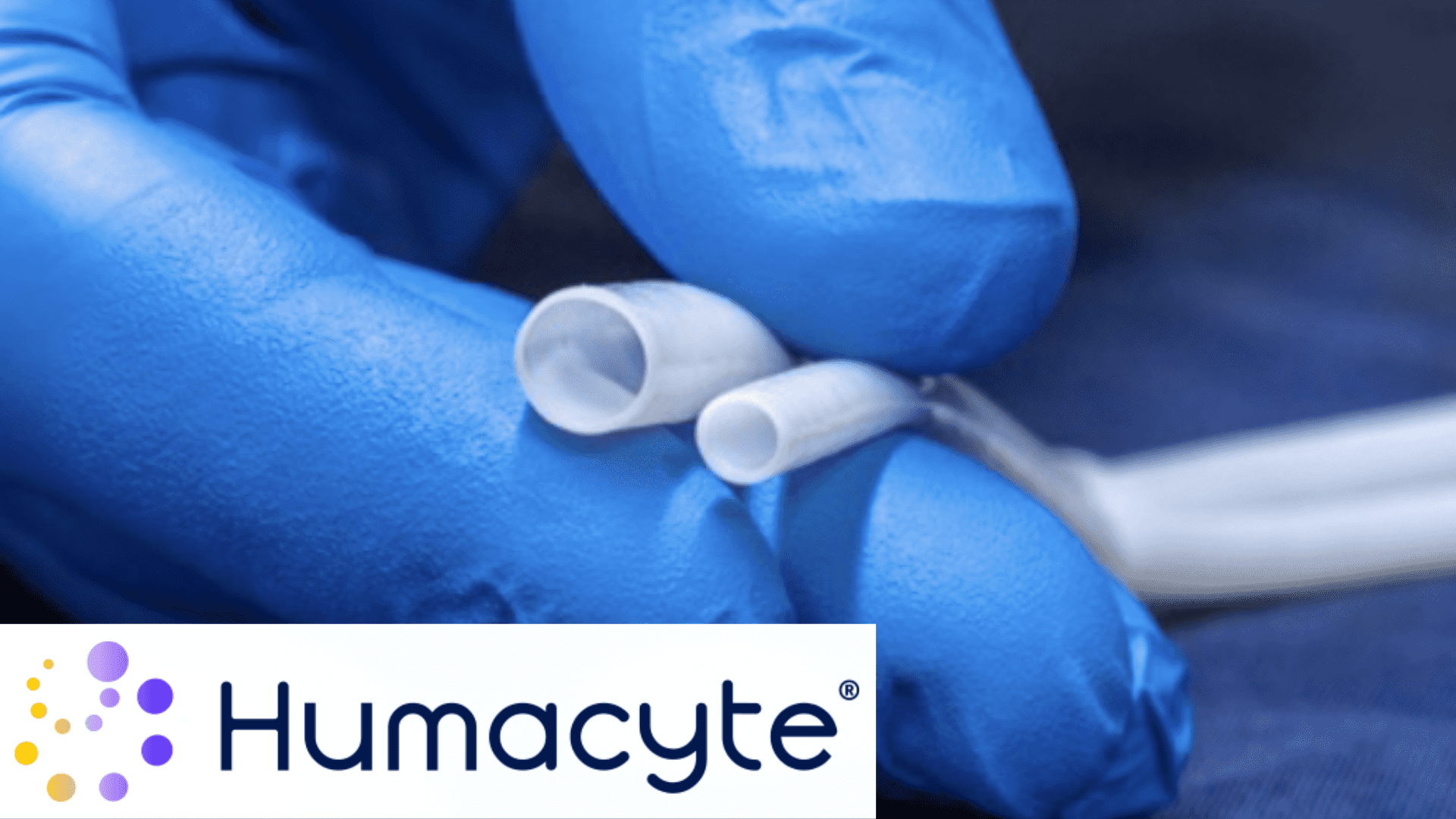
Humacyte Reports More Positive Results from Engineered Blood Vessels in Ukraine
By Barry Teater | September 5, 2024
| BioBuzz has been connecting the life science workforce since 2009. We’ve built an expansive community in the Mid-Atlantic with a national readership that spans from Massachusettes to Florida, and New York to California. For our next chapter, we’re building a proprietary talent logistics model to help employers source and hire life science talent. Learn more. |
Durham-based Humacyte has presented positive long-term results from its bioengineered blood vessels used to treat wartime vascular injuries in Ukraine.
The company said its investigational acellular tissue engineered vessel (ATEV) showed a high rate of patency, or blood flow, and the avoidance of amputation and infection, despite the severe nature of the injuries treated.
The results were presented at the Military Health System Research Symposium, the U.S. Department of Defense’s foremost scientific meeting, in Kissimmee, Fla.
“We are pleased that the long-term results in a military setting are consistent with the 30-day results previously observed and support the potential durability of the ATEV in vascular trauma patients,” said Shamik Parikh, M.D., chief medical officer of Humacyte. “For repair or reconstruction of traumatic vascular injuries when autologous veins are not feasible, the ATEV may offer combat surgical teams an off-the-shelf and universally implantable alternative that has shown extremely low rates of infection, potentially offering durable performance and help with limb salvage.”
The presentation highlighted the results for 16 patients in Ukraine who suffered severe injuries from mine blasts, shrapnel, high-velocity ballistics and other causes. Nearly a year after receiving Humacyte’s surgically implanted vessels for their wounds, the patients had an 87.1% rate of blood flow with no instances of infections, amputation of affected limbs, aneurysm, or death, the company reported. There was one case of thrombosis, or blood clotting, after month six.
“We are very grateful for the invaluable support during this difficult time,” said Oleksandr Sokolov, M.D., Ph.D., a Ukrainian vascular surgeon who treated patients with the ATEV under a humanitarian-use program. “The ATEV implantations performed for those wounded by blast injuries have significantly reduced the time of acute ischemia following injury, which has a positive impact on the preservation of lives and limbs. These implantations are quicker due to the absence of the need for vein harvesting for graft preparation and have excellent immunological and infection resistance, making them particularly effective in the context of combat injuries.”
The ATEV is an investigational product and has not been approved for sale by the U.S. Food and Drug Administration or any other regulatory agency. The FDA had been scheduled to complete a review of a Biologic License Application for the product by Aug. 10, but that action was delayed indefinitely when the agency told the company on Aug. 9 that it needed more time.
ATEVs are made from banked human cells seeded onto tubular scaffolds, and the resulting vessels are later “de-cellularized,” so they won’t trigger an immune response when surgically implanted into a patient. The ATEVs can be produced in varying diameters and lengths within a few weeks.
The vessels are intended to overcome long-standing limitations in vessel tissue repair and replacement. According to Humacyte, the vessels can be manufactured at commercial scale and eliminate the need for harvesting vessels from patients. Clinical evidence suggests that they are non-immunogenic, infection-resistant and can become durable living tissue.
In addition to traumatic injury, ATEVs are being evaluated in clinical trials for use in arteriovenous access in hemodialysis and peripheral arterial disease. Preclinical research is also underway for potential use in pediatric heart surgery, coronary bypass grafting and other tissue and organ applications.
Humacyte was founded in 2004 by three Duke University scientists: Laura Niklason, M.D., Ph. D., a leader in cellular therapies and regenerative medicine; biomedical engineer Shannon Dahl, Ph.D., and molecular biologist Juliana Blum, Ph.D.
The North Carolina Biotechnology Center provided the company with a $150,000 Small Business Research Loan in 2006 to support its early work.
Humacyte became a publicly traded company in 2021 through a merger with a special purpose acquisition company. Its shares are traded on the Nasdaq stock exchange under the symbol HUMA.
This article originally appeared on NCBiotech‘s website.
- About the Author
- Latest Posts
BioBuzz is a community led, experience focused, biotech and life sciences media and events company. BioBuzz highlights regional breaking news, industry professionals, jobs, events, and resources for business and career growth. Their weekly newsletter is subscribed to by thousands in the BioHealth Capital Region and Greater Philadelphia as the go-to for industry updates.








